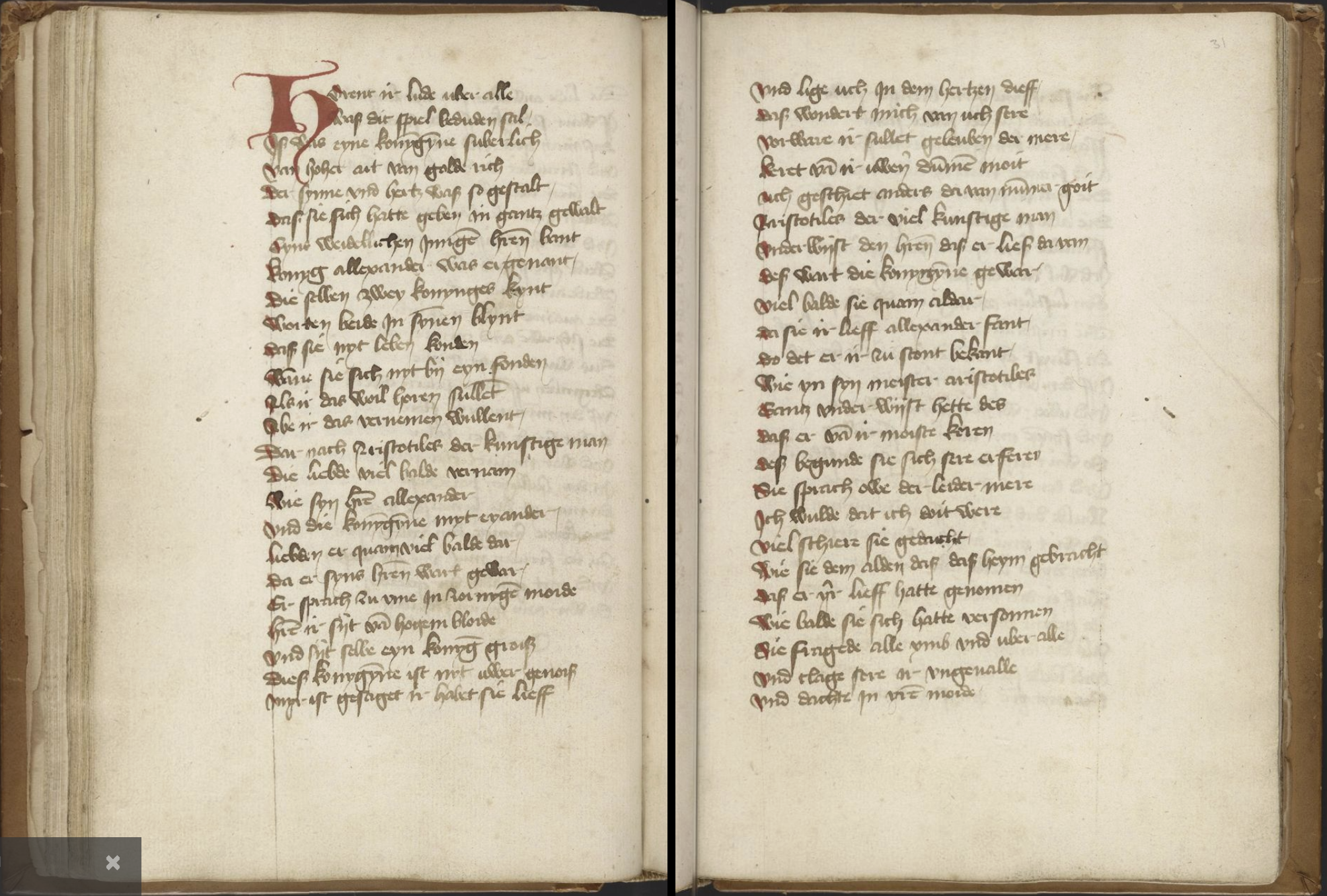XO56 [Aristotle and Phyllis]

Full description
[Aristotle and Phyllis], Lower Rhine (possibly Cologne), 1400-1450
Penn Libraries, Kislak Center for Special Collections, Rare Books and Manuscripts, Ms Codex 824
This German religious miscellany contains (at 30v-47r) a comedic play, which narrates the legendary tale of Phyllis (lover of Alexander the Great) and Aristotle. According to the story, which has a long tradition, after expressing his concern about Alexander’s obsessive love for Phyllis—an Indian damsel he met while conquering Asia—Aristotle convinced the King to spend time far from her, as she was causing him to neglect his court. Hurt by this, Phyllis decided to take her revenge by seducing Aristotle, who eventually fell victim to her charm, and begged her to satisfy him sexually. As a condition for her services, Phyllis persuaded him to be ridden as a horse, proving that even the brightest of minds can be subjugated to lust. By discussing the story of Aristotle and Phyllis, this work relates to a broader tradition in which classical culture was repurposed to align with medieval Christian morality. Indeed, in the Middle Ages, it may have represented a popular motif intended to moralize on the alluring power of women and the hazards of carnal temptation. When circulating in the first half of the 15th century, this play—written in German vernacular—contributed to showing a different side of Aristotle, far from the idealized image of the perfect Philosopher. Aristotle's fall becomes a symbol for the limits of human rationality in the face of love and lust, and it also suggests a world turned upside down, where women can dominate even the wisest of men.
Mattia Italiano
Comments
to view and add comments.
Annotations
No one has annotated a text with this resource yet.
- typeImage
- created on
- file formatpng
- file size4 MB


